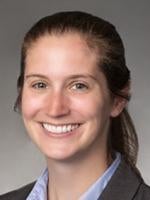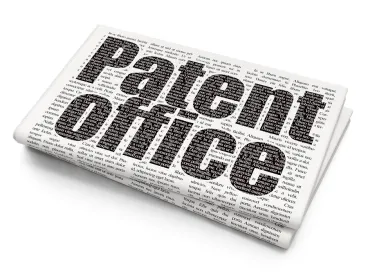In a short opinion issued on December 11, 2019, the Supreme Court rejected the PTO’s recent attempt to collect attorneys’ fees under a little-used provision of the Patent Act. The decision in Peter v. NantKwest (No. 18-801) asked whether this is a statute to which the American Rule (the principle that each party is responsible for its own attorneys’ fees) should be applied, and if so, whether there is statutory language overcoming the Rule’s presumption against attorney fee shifting. The Supreme Court said that the American Rule did apply and that there was insufficient support for fee shifting.
If a patent applicant is dissatisfied with the ultimate decision of the PTO, the applicant has two options. One option is an appeal directly to the Federal Circuit; a second option is a civil action in the U.S. District Court for the Eastern District of Virginia. 35 U.S.C. §§ 141 & 145. Civil actions in the district court permit the applicant to establish a new factual record supplemented by discovery and motions practice. However, in exchange for choosing this option, the applicant must pay “[a]ll the expenses of the proceedings.” 35 U.S.C. § 145.
In the 170-year history of § 145 and its predecessors, the PTO had never sought compensation for attorneys’ fees, instead typically recovering travel expenses, printing expense, court reporter fees, and expert witness fees. Recently, however, the PTO has charged applicants for the pro-rated salaries of the PTO attorneys who worked on the case. See NantKwest, Inc. v. Lee, 162 F. Supp. 3d 540 (E.D. Va. 2016). The PTO has also done the same for trademark applicants, taking advantage of a provision in the trademark statute similar to § 145. See Shammas v. Focarino, 784 F.3d 219 (4th Cir. 2015); Booking.com v. Iancu, 915 F.3d 171 (4th Cir. 2019) (cert petition filed April 10, 2019)*.
In this case, NantKwest’s patent application was rejcted by the PTO and NantKwest went to the district court. NantKwest, Inc. v. Iancu, 898 F.3d 1177, 1180-81 (Fed. Cir. 2018) (en banc). The PTO prevailed there and, at the culmination of the case, submitted a bill to NantKwest for a variety of “expenses,” including $78,592.50 in attorneys’ fees. Id. This amount was calculated by pro-rating the PTO attorneys’ and paralegal’s yearly salary by the amount of time worked on the NantKwest case. Id. The district court denied the PTO’s request for payment of these fees but, on appeal to the Federal Circuit, a panel decision reversed. Id.
The Federal Circuit voted sua sponte to rehear the appeal en banc on one question, “whether the panel ‘correctly determine[d] that 35 U.S.C. § 145’s “[a]ll the expenses of the proceedings” provision authorizes an award of the [PTO’s] attorneys’ fees.’” Id. The majority ultimately affirmed the district court’s denial of attorneys’ fees, finding that “[a]warding ‘[a]ll the expenses’ simply cannot supply the ‘specific and explicit’ directive from Congress to shift attorneys’ fees, and nothing else in the statute evinces congressional intent to make them available.” Id.
Supreme Court Decision
The Supreme Court granted cert on the question “[w]hether the phrase ‘[a]ll of the expenses of the proceedings’ in 35 U.S.C. 145 encompasses the personnel expenses the USPTO incurs when its employees, including attorneys, defend the agency in Section 145 litigation.” The short, unanimous decision held that the PTO cannot recover these personnel expenses. Like both Federal Circuit opinions, this decision was reached after careful analysis of the applicability and reach of the American Rule. The American Rule, with roots back to the 18th century, stands for the proposition that “[e]ach litigant pays his own attorneys’ fees, win or lose, unless a statute or contract provides otherwise.” Hardt v. Reliance Standard Life Ins. Co., 560 U.S. 242, 252-53 (2010); see Baker Botts L.L.P. v. ASARCO LLC, 138 S. Ct. 2158, 2164 (2015). There were two main issues in this case: whether the American Rule actually applied and, if it did, whether there was sufficient support in the statute to overcome the presumption against shifting attorneys’ fees to the opposing party.
The American Rule Applies
First, the Court concluded the American Rule did apply. While the PTO argued the American Rule only applied to statutes exclusively awarding fees to the prevailing party, the Supreme Court cited its own cases contrary to this assertion; there is no precedent to “suggest[] that any statute is exempt from the presumption against fee shifting.” Rather, as proven in Sebelius v. Cloer, 569 U.S. 369 (2013), there are fee-shifting statutes that apply to non-prevailing parties, and the American Rule still applies. The Supreme Court also noted that, contrary to the Federal Circuit en banc dissent, a § 145 civil action in the district court is an adversarial litigation, not a continuation of the application process with legal fees assessed as associated application costs. Under § 145, NantKwest, regardless of the outcome in the district court, would be liable for the PTO’s “expenses.” Thus, though § 145 might cause a non-prevailing party to pay expenses of the prevailing party, the American Rule still applied.
There Is Insufficient Support to Overcome the American Rule
Congress must give a “specific and explicit” directive in order to overcome the American Rule’s presumption against fee shifting. Alyeska Pipeline Service Co. v. Wilderness Soc’y, 421 U.S. 240, 260 (1975). The Supreme Court analyzed definitions of “expenses,” usage of the phrase in other statutes, and the history of § 145 and found that there is insufficient clarity to deviate from the American Rule.
Looking at definitions of the word “expenses,” the Court found that while the definitions are expansive enough to support inclusion of attorneys’ fees, “the mere failure to foreclose a fee award ‘neither specifically nor explicitly authorizes courts to shift [fees].’” (citing Baker Botts, 138 S. Ct. at 2165). In fact, by reading the word in the context of the statute, “expenses” would not have included attorneys’ fees at the time of § 145’s enactment. Nor, as previously asserted in the case, does the modifier “all” increase the scope of “expenses.” The Court concluded the plain text of § 145 does not support overcoming the American Rule.
Next, the Court cited numerous statutes in which Congress understood “expenses” and “attorneys’ fees” to be separate and distinct terms. Instead, “attorneys’ fees” can only be understood as a subset of “expenses” when Congress explicitly defines it as such. The Court goes on to state that the cases the PTO advanced in support of its argument do no such thing. Rather, “the term expenses alone has never been considered to authorize an award of attorneys’ fees with sufficient clarity to overcome the American Rule presumption.” NantKwest, 589 U.S ___, No. 18-801, slip op. at 9.
Finally, the history of the Patent Act itself supports the Court’s conclusion that Congress did not intend to shift attorneys’ fees. While attorney salaries might be included in the “expenses” of the PTO, this does not mean they are considered “expenses” of § 145 litigation. The Court also pointed out that the PTO had never, until this case, sought to have attorneys’ fees paid at the conclusion of a § 145 case. Indeed, this failure was the focus of numerous questions during oral argument, as the Justices appeared skeptical the PTO could suddenly reinterpret the statute to support this billing scheme. The Court pointed out that there are other sections of the Patent Act in which attorney fee shifting is permitted and it is explicitly detailed in the statutory language. Without a similarly “specific and explicit” directive in § 145, the Court declined to read § 145 as empowering the PTO to receive attorneys’ fees as a portion of the “expenses” it was otherwise entitled to collect.
Implications
As noted by both the Federal Circuit and Supreme Court, there are very few patent applicants who seek § 145 review in the district court. This, combined with a Supreme Court opinion that only cements the status quo as it was prior to the NantKwest case, likely means the opinion will have little effect on patent prosecution strategy. In fact, the biggest shift may be in trademark law. Similar to § 145 in patent law, 15 U.S.C. § 1071(b)(3) enables the PTO to collect expenses when a mark applicant appeals the PTO’s decision to deny registration to the district court. Unlike with the patent statute, the PTO has used the trademark statute multiple times to collect attorneys’ fees. The Fourth Circuit has already affirmed this interpretation of § 1071 and there is a pending cert petition addressing this issue, Petition for Writ of Certiorari, Booking.com v. Iancu, No. 18-1309 (this is separate from USPTO v. Booking.com (19-46) in which cert was recently granted). The PTO acknowledged in oral argument that the decision in the NantKwest case would also apply to interpretation of § 1071. The Supreme Court scheduled the Booking.com petition for its conference on December 13 so we will have to see if, in the next few weeks, there is any movement from the Court.
The PTO is left with two options for § 145 litigation. It can either continue to exclusively collect smaller expenses like travel expenses, printing expense, and court reporter fees, or ask Congress to change the language in § 145. The Supreme Court has made it clear that the current statute cannot support any other interpretation. But, the Court decision here leaves open the possibility of future applicants protesting being charged expert witness fees. NantKwest in oral argument admitted that while it paid these costs, it did not believe § 145 supported this. Now that the Supreme Court has explained that the language in § 145 does not encompass attorneys’ fees, there may be future litigation seeking to further refine the extent of this holding. While the decision on December 11 does not radically shift the needle of patent prosecution strategy, it does create more clarity for applicants and paves the way for future litigation in both the patent and trademark space.




 />i
/>i

